Encouraging staff to upsell is a cost free way to increase sales, whilst enhancing your customer service. Here’s how to master the technique.
We’ve all been faced with a lacklustre cashier, asking whether you want to add a block of chocolate to your purchase. The law of averages states that if you ask every single customer to buy an extra product, there will be some who agree, and this will be reflected in a surge in sales for one particular line. But it’s also possible that a high percentage of customers will be put off by this impersonal sales technique.
With this in mind, you may well wonder whether the extra sales to be gained from upselling are worth the risk of upsetting customers. However, by approaching upselling in the right way, your staff can boost sales, while embarking on an informative and engaging customer interaction, rather than a dull, repetitive annoyance.
Shaun Marwaha has been implementing upselling across his three Premier stores in Glasgow over the past year. But he concedes that encouraging staff to upsell isn’t always straightforward. “It’s a long process. We have 40 staff over three sites and some have been with us many years getting them to change their habits is hard. It’s about changing the culture and making sure staff understand the reasons behind upselling and how to go about it.”
the figures on upselling
One in five shoppers admit to being open to browsing and purchasing additional products in a c-store
Nearly one-third of shoppers would like staff to suggest products to them
Upselling can increase promotional purchasing by between 200% and 300%
If convenience store staff suggested a product to shoppers, 38% would be likely or very likely to buy if it was on promotion, and 27% if it was a new product
91% of convenience retailers believe shoppers would buy a suggested promotion
78% of convenience retailers think that shoppers would buy a suggested new product.
Sales Assistant of the Year 2012 Daniel Hill believes that upselling needs to be thought of as providing a service, rather than a hard sell. “Upselling gives customers alternative options, so it is a form of customer service as well as a way of increasing sales,” he says. “You need to have a conversation with customers to build a rapport.”
He has developed a strategy at his store - Spar Lambeg, Northern Ireland - whereby staff analyse the key benefits of a product and promote these to the customer. “We get staff to look at the features, advantages and benefits of the products they are upselling. For example, if you wanted to encourage customers to buy a bag of oranges, you could tell a customer that the items are sourced from Spain, that they make up one of your five-a-day, and that you get 12 in a pack for £1.50.”
You can even encourage staff to tailor which features they highlight to their particular customer base. For example, many of the residents of Hassocks in West Sussex are interested in sustainability and local produce, so Knight’s Budgens employee Angus Pidgley hones in on this when upselling.
“I tell people that this particular product is the local choice - own brand is still good, but a lot of people are interested in local and they like to try new products. I don’t feel I’m forcing them into anything - they’re happy to enjoy it.”
He also ensures he has done his homework on the product. “Having a bit of background knowledge helps - we have photos of the local firms in-store and product knowledge cards. It’s also good to know how to cook with the products we sell. For example, you can tell customers how to turn mince into burgers, simply by adding breadcrumbs, onions and herbs.”
New products are regularly tried and tested in the Knight’s Budgens staff canteen, and because he has genuinely tasted and enjoyed certain products, Angus has no qualms in recommending them to others. “I’ll explain to customers which products in a range I’ve tried,” he says. “It’s much easier to talk about a product when you’re telling the truth.”
Angus also upsells complementary items that he thinks customers may find useful. “If someone buys burgers, then we’ll remind them to buy salad or rolls to go with them - they appreciate it.”
Knight’s Budgens store owner David Knight actively encourages this and sometimes gives staff guidance sheets to help them upsell complementary items. “We had a Pimm’s promotion over the summer, so we had a guidance sheet for staff to remind them to say: ‘Did you know we stock the fresh produce that goes with it - herbs, lemonade, fruit and so on,’” he explains.
Spar Lambeg’s staff are also quick to suggest complementary products. “I encourage staff to analyse people’s baskets and see if there’s anything that complements their existing shop,” says Daniel. “For example, if they have minced meat and chopped tomatoes for a Bolognese, then you could suggest that they buy garlic. It can often be the case that they have simply forgotten to buy a product, so you are actually helping them out.”
In addition to telling customers about complementary products, staff can also try upselling products that are on multi-buy and meal-deal promotions. “Sometimes it’s up to staff to remind customers - they can walk around with blinkered vision,” says Springisland Supermarket training officer Martina Casey, in Coalisland, Northern Ireland.
“Older people, in particular, often don’t realise that a product is on deal. Over the summer we ran a link discount on strawberries with cream. If staff saw people buying strawberries at the till, then they know to tell them about the offer. It drives sales across both categories.”
And when you get it right, the results of upselling speak for themselves. “You get at least a 100% uplift in sales when you upsell a product,” says Martina.
David has also seen impressive results. “We’ve targeted particular products, such as strawberries, with staff offering a punnet for £2. We sold 450 punnets one Saturday, compared with 200 the week before.”
It’s a similar story at the Scotmid Co-operative estate, where the stores were given a target of selling 30% more strawberries this year than last, but thanks to efforts of staff they ended up smashing the target and more than doubling last year’s sales.
A key skill
Products are also flying out of the door at Spar Binnian Fresh Foods in Kilkeel, Northern Ireland, where staff upsell a different product every week. “On one occasion we focused on Cadbury Crunchie four-packs and sold 1,400 in a week just through staff upselling them at the tills,” says manager Gregory Cochrane.
In fact, upselling is now such a key part of their role that Gregory now gets potential recruits to upsell during their job interviews, and has also given his existing staff training on how to improve. “I sit people down and tell them it’s part of their job,” he says. “I advise them to practice with role play. We have team leader observation where each person is monitored and assessed on what they said and what they should have said.”
Burns & Co, which owns four Spar forecourts in Worcestershire, has gone one step further and sent staff on official upselling training. Last year, they attended a Spar Guild Academy training course in 2012 and then began upselling a different product for the first fortnight of every three-week promotional cycle. Development manager Georgi Burns helps to pick which items to focus on. “We don’t tend to stick to what Spar recommends for its company-owned stores,” she says. “We pick products that we know will sell in a forecourt, such as confectionery. Mars Caramel, Crispello and Kit Kat Chunky have all done well.” Results so far have been astounding, with upselling generating a significant amount of incremental sales.
Shaun has also made upselling part of the routine at his stores and has set ambitious sales targets. “We’ve tried to get staff to have a conversation with the customer, so it’s not like a sales pitch it isn’t rigid,” he says. “It can’t be scripted, or it would be boring and monotonous for customers.
“We initially focused on a new product every week, but feedback was that customers were being asked about the same product too often. We now change the upsell product every three days to stop it getting stale. It seems to work best with confectionery, and items around the £1 mark,” he says. “We’re aiming for 4-5% of our overall turnover to come from upselling.”
One way of motivating staff to upsell is to reward their efforts. “We put a small incentive in place, such as the person who sells the most over three days gets the product or deal they are promoting,” he says.
Paul Cheema has already asked his suppliers to help incentivise staff at Malcolm’s Store in Coventry. “We’re holding team days where everyone sells a particular product. We ran a Maltesers upsell challenge where top sellers won a goodie bag and a Love2Shop voucher. We make sure that suppliers are thinking about how we can reward staff.”
Competitive spirit
Georgi has also introduced an element of competition at Burns & Co. “We’ve run it as a competition between stores and whoever gets the best conversion rate wins Love2Shop vouchers,” she says.
Spar Lapford Cross in Devon has also come up with a clever way to motivate staff. Every time a member of staff makes a successful upsell, they print off an additional receipt which goes into a sealed box. At the end of the week, the staff member with the most receipts in the box receives some chocolates. A chart on the office wall shows the difference their upselling makes to the business.
Turning staff into super-sellers won’t happen overnight, but with a little planning and a lot of encouragement, they will rise to the challenge. “There are a small number of customers who say ‘you’re always trying to sell me things’, but that is far outweighed by the benefits,” says Shaun. “It’s an added sale with no extra cost and something we can’t afford not to do.”

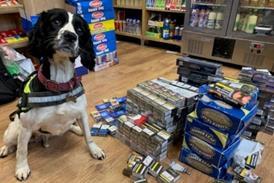
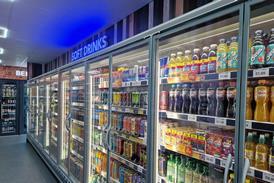
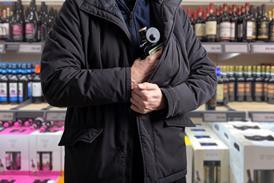




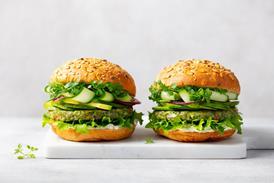
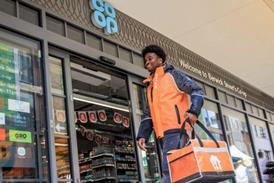

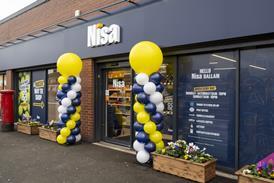














No comments yet